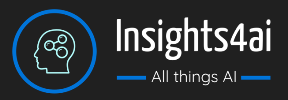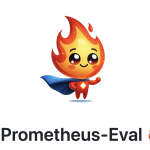Language models, a subset of artificial intelligence, focus on interpreting and generating human-like text. These models are integral to various applications, ranging from automated chatbots to advanced predictive text and language translation services. The ongoing challenge in this field is enhancing these models’ efficiency and performance, which involves refining their ability to process & understand vast amounts of data while optimizing the computational power required.
A significant challenge in natural language processing is the efficient scalability of language models to handle increasingly complex tasks. This includes improving their speed, accuracy, and ability to interact in a human-like manner without escalating computational costs. Researchers continuously seek methods to refine these models, making them more adept at understanding the context and subtleties of language.
Traditionally, language models undergo extensive pre-training on massive datasets, including everything from literary works to internet text. This training is designed to equip the models with a broad understanding of language & context. The next phase typically involves fine-tuning more specialized datasets to adapt the model for specific tasks, such as legal document analysis or conversational interfaces.
One pivotal aspect of this research is the introduction of the Buzz dataset by Alignment Lab AI, in collaboration with Hive Digital Technologies, a meticulously curated collection used to train the new model. This dataset encompasses a variety of text sources and is designed to provide a comprehensive foundation for model training. Notable for its volume and diversity, the Buzz dataset includes over 85 million conversational turns pulled from 435 unique sources. This extensive compilation allows for nuanced training processes that significantly improve the model’s ability to generate contextually relevant and syntactically diverse text.
The new methodology employs an innovative approach to this fine-tuning phase. The research team has developed an iterative fine-tuning process that reuses existing pre-trained models and enhances their performance through strategic modifications. This process involves adjusting the models based on feedback from their performance in specific tasks, effectively allowing the model to ‘learn’ from its outputs.
The essence of this approach lies in its use of iterative cycles of feedback and adjustment, which significantly reduce the need for re-training from scratch. This method utilizes distributions of “grounding” data collected from previous epochs phases of the model’s training, which guide the adjustment process. Such a strategy conserves computational resources and sharpens the model’s accuracy and efficiency.
The research’s performance indicates substantial improvements in model efficiency. For instance, the models have been shown to achieve lower error rates in text generation tasks through iterative fine-tuning. They demonstrate up to a 30% reduction in computational overhead compared to traditional fine-tuning methods. Furthermore, these models maintain robustness in output quality, indicating that the iterative process helps prevent overfitting.
In conclusion, the collaborative efforts between Alignment Lab AI and Hive Digital Technologies advance the development of language models. Their research on iterative fine-tuning introduces a sustainable, cost-effective method that enhances model performance without the extensive use of additional resources. This breakthrough addresses key issues like computational efficiency and model accuracy and sets a new standard for how language models can be developed and improved upon in the future.
Check out the Dataset and HF Page. All credit for this research goes to the researchers of this project. Also, don’t forget to follow us on Twitter.











